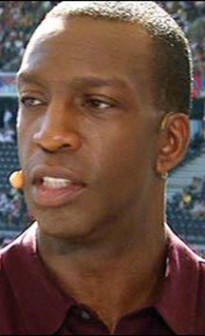LONDON, (Reuters) – Doping authorities should bring their rules into line with the International Olympic Committee to prevent convicted cheats competing at the Olympics, former sprint champion Michael Johnson said on Wednesday.
The Court of Arbitration for Sport (CAS) cleared the way in October for dozens of convicted dopers to compete at the Games when they rejected an IOC eligibility rule as invalid.
The rule, which was introduced in 2008, banned athletes from competing at the next Olympics if they had served a suspension for doping of six months or longer.

CAS said the Olympic ban was not in line with the World Anti-Doping Agency’s (WADA) code.
“I think the IOC is going to have to go back and work with WADA to get that (eligibility) rule as part of the WADA code,” Johnson, a four-time Olympic gold medal winner, told Reuters at a charity event in South London.
“Once that is in place I think everybody will be a lot happier.”
The CAS ruling has opened the door for Olympic 400 metres champion LaShawn Merritt to compete at the next Games in London in 2012.
The American was handed a 21-month ban for testing positive for a banned substance in 2009 and 2010, but has since returned to competition and was a double medallist at the world championships in South Korea in August.
“NO CLARITY”
The International Association of Athletics Federations estimated around 50 track and field athletes could be affected by the CAS verdict.
“I think that their ruling makes sense,” added Johnson. “(They said) it’s not fair to ban a person and then ban them again once they have already served their punishment.
“But I think that all of those people sitting on that board probably felt like they wish it were fair, because I think they all think as I do, that it is a good thing having an athlete who has been caught cheating miss an Olympics.
“They probably felt like their hands are tied.”
Critics of the IOC eligibility rule said it acted as a double punishment, with athletes serving suspensions and then being forced to miss the Olympics.
It has been shrouded in confusion, however, as the British Olympic Association said it intended to maintain a similar by-law that banned convicted dopers from the Olympics for life.
“There is no clarity, therein lies the problem,” American Johnson said at the Laureus Sport for Good event at a former school used for community projects in a run-down area of London.
“CAS is there for a reason and I think it is very good that we have that.
“I think that WADA and CAS and the people that sit on that (CAS) ruling committee all have the same goals: to deter people from using drugs.
“I think it is just a matter of trying to get coordination between all the organisations so that everyone is on the same page and the rulings are fair.
“I think that’s what CAS is in place for.”








